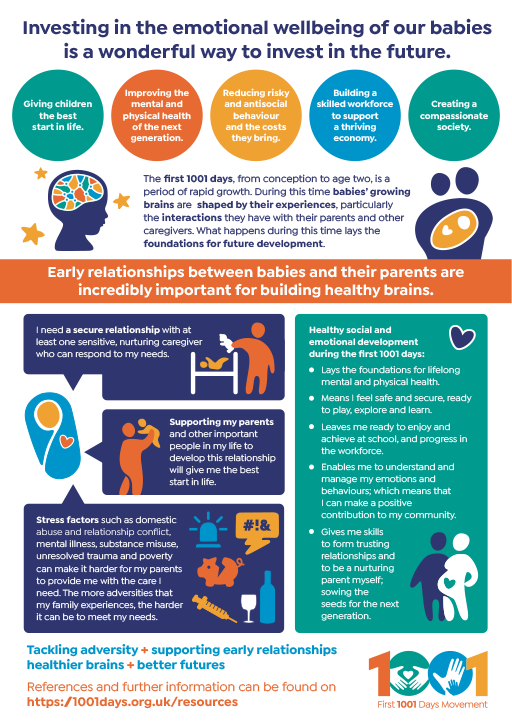Introduction
The first 1000 days from conception to the age of two is a time of rapid growth, when little brains are growing and developing. Our brains are shaped by the experiences we have in those early years and our parents and other caregivers around us. These early experiences lay the foundations for the rest of our lives, so providing the right support at this stage is vital in supporting the wellbeing of the babies in your care.
There is a growing number of babies splitting their time between home and baby rooms, and the care that children require in the first 1000 days looks different to that of practice with older children. As a caregiver in a baby room it is vital not only to provide care but also to support the child’s emotional, cognitive, and physical development. Building a strong, communicative relationship with parents is equally important as it ensures consistency, trust, and mutual support between the home and nursery environments.
This collaboration significantly benefits the child’s overall development and wellbeing, creating a holistic support system that nurtures the child in their most formative years. A strong relationship between caregivers and parents fosters trust. When parents trust the caregiver, they feel more comfortable and secure leaving their child in their care. Open communication ensures that parents are informed about their child’s day, progress, and any concerns that may arise.
By the end of this week, you will be able to:
- understand how senses and reflexes form part of brain development
- recognise how adults can support a baby’s brain development.

